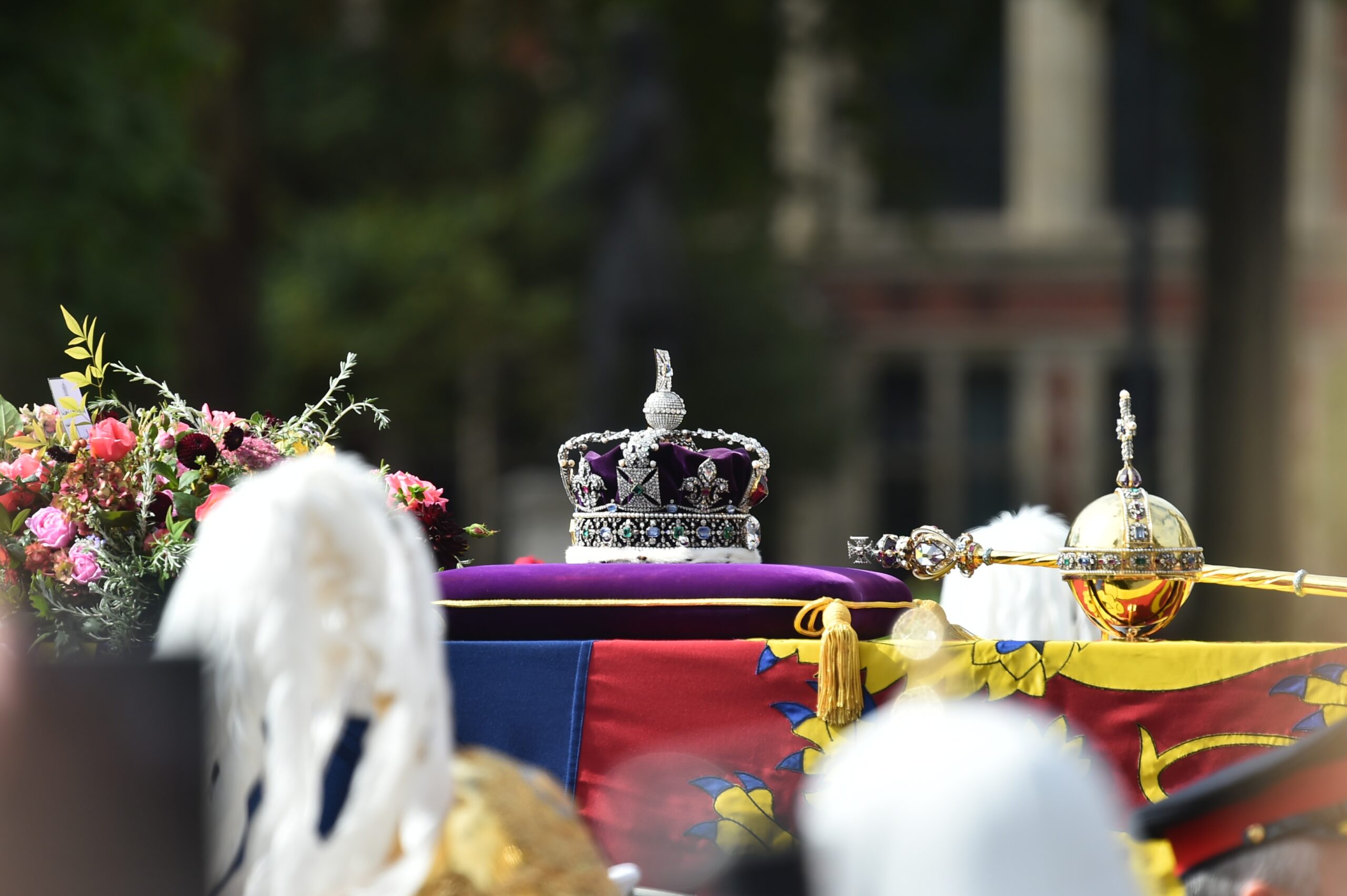A Teacher Was Suspended for Encouraging Students to Question the Monarchy
'We’re rapidly sliding into fascism.'
by Rivkah Brown
21 September 2022

A teacher at a secondary school in Scotland has been suspended after making “inappropriate comments” during a lesson about the royal family, in the latest case of anti-republican repression following the death of Queen Elizabeth II.
On Tuesday, North Lanarkshire Council suspended the teacher – who has taught in the area for 22 years – from Clyde Valley High School.
After being informed of his suspension, the teacher was escorted off of the premises – due, he was told, to concerns for his safety. He requested anonymity for the same reason.
A spokesperson for the council said: “We do not comment on individual employee matters.”
‘Inappropriate comments.’
In a letter to the teacher, Janie O’Neill, head of the council’s education and families team, said the reason for his suspension was a “parental complaint […] alleging that you made inappropriate comments whilst teaching a class about the royal family […] [and that] you mocked pupils in relation to this.”
Though O’Neill does not specify these “inappropriate comments” in her letter, the teacher believes she is referring to an incident that occurred on Thursday, during a modern studies class with his third-year (year 9) students.
Speaking to Novara Media, the teacher recalls asking his class: “Have you noticed the media coverage about the royal family? And have any of you ever thought that it’s a bit odd that you don’t hear any dissenting voices, everybody’s all pushing the same narrative? You know, you don’t hear anybody saying, ‘Well is this maybe a time to think about moving away from a royal family?'”
He says that while most of his students seemed to agree with his comments, one took umbrage: “This one girl flew at me and said, ‘You must be a Catholic’ […] [and] ‘You must respect the Queen’”.
The teacher says he replied: “You know, that’s really funny. That’s how my mum responds when I raise this issue with her.” He recounts that the other students laughed, while the girl “looked furious” and “stormed off”.
When he arrived at work five days later, the teacher was summoned to a meeting with Jacqueline Burton, education and families manager at North Lanarkshire Council, who notified him he was being suspended pending an investigation.
“I couldn’t believe it was happening to me, but at the same time, I wasn’t that surprised,” says the teacher, who is being supported by his union, the Educational Institute of Scotland. “The warning signs have been there for years.”
‘If you hate the royal family, clap your hands.’
While the Queen’s death has reignited tensions between republicans and monarchists across the UK, in Scotland the issue is particularly fraught, enmeshed as it is with sectarianism.
The Reformation of the 16th century split Scotland between a Catholic minority and Protestant majority. After Scotland became part of the UK in 1707, these divides began to loosely map onto pro-independence and unionist sentiment (although Scottish Protestantism has its own long history of separatism). Nowadays, this sectarianism expresses itself most starkly in western Scotland, particularly in the rivalry between the Glaswegian football clubs Celtic and Rangers.
On Monday, at a match against another Scottish team, Celtic fans hoisted a banner that read ‘If you hate the royal family, clap your hands’ during a minute’s applause to honour the Queen, prompting an apology from the Sky Sports commentator.
The country has also seen a spate of arrests following the Queen’s death, including that of a 22-year-old woman for holding an anti-monarchy sign and of a 22-year-old man for heckling Prince Andrew.
“There’s been decades of bigotry, hatred and violence between [unionist and pro-independence] communities,” says the teacher, whose mother is Catholic and whose father is Protestant. The royal family, he adds, “is [a] toxic [issue] in this part of the world.”
Still, that hadn’t prevented him from teaching many classes on the royals in the past: “It’s something that I would always be free to talk about, and wouldn’t get any sort of complaint.”
This recent change, he says, is a symptom of a much broader and more worrying shift in British society.
Democracy backslides.
The teacher says the apparent restrictions on his free speech point to an anti-democratic tendency within the Tory government. “We’re rapidly sliding into fascism, if we’re not already there,” he says. “These are the kind of things that happen as a result of that.”
He adds that the threats to his safety evidence the danger of this kind of political repression: “[The idea that] you must worship [the royal family] uncritically is very dangerous because it means that anyone expressing a different point of view is vulnerable – the very fact that I was threatened tells you that.”
Graham Smith is CEO of the political campaign group Republic. “If the school has an issue with teachers talking openly and honestly about monarchy and the coverage that it receives, then there is a serious problem,” he says. “This attack on free speech needs to stop.”
Asked by Novara Media whether the teacher’s suspension was part of a broader attempt to repress republican sentiment across the UK, a council spokesperson “completely refute[d] the allegation”.
For his part, the teacher believes the state’s hair-trigger repression of republicanism belies deep insecurity: “I think they’re probably cracking down so much because this is a vulnerable time for the establishment […]. Elizabeth was probably pretty popular with lots of the population; Charles I’m not sure is so popular.”
“At this time of transition,” he adds, “I’m sure they’re more than a little worried that a lot of people [will] start to wake up to the unjust system and the ridiculous inequality in our society.”
Rivkah Brown is a commissioning editor and reporter at Novara Media.


